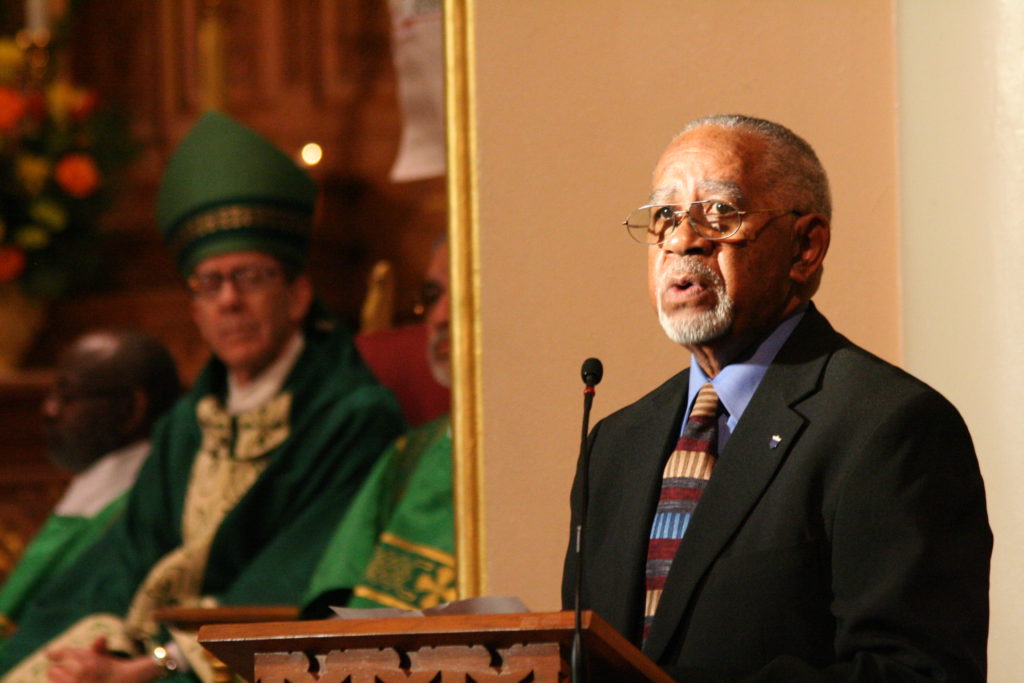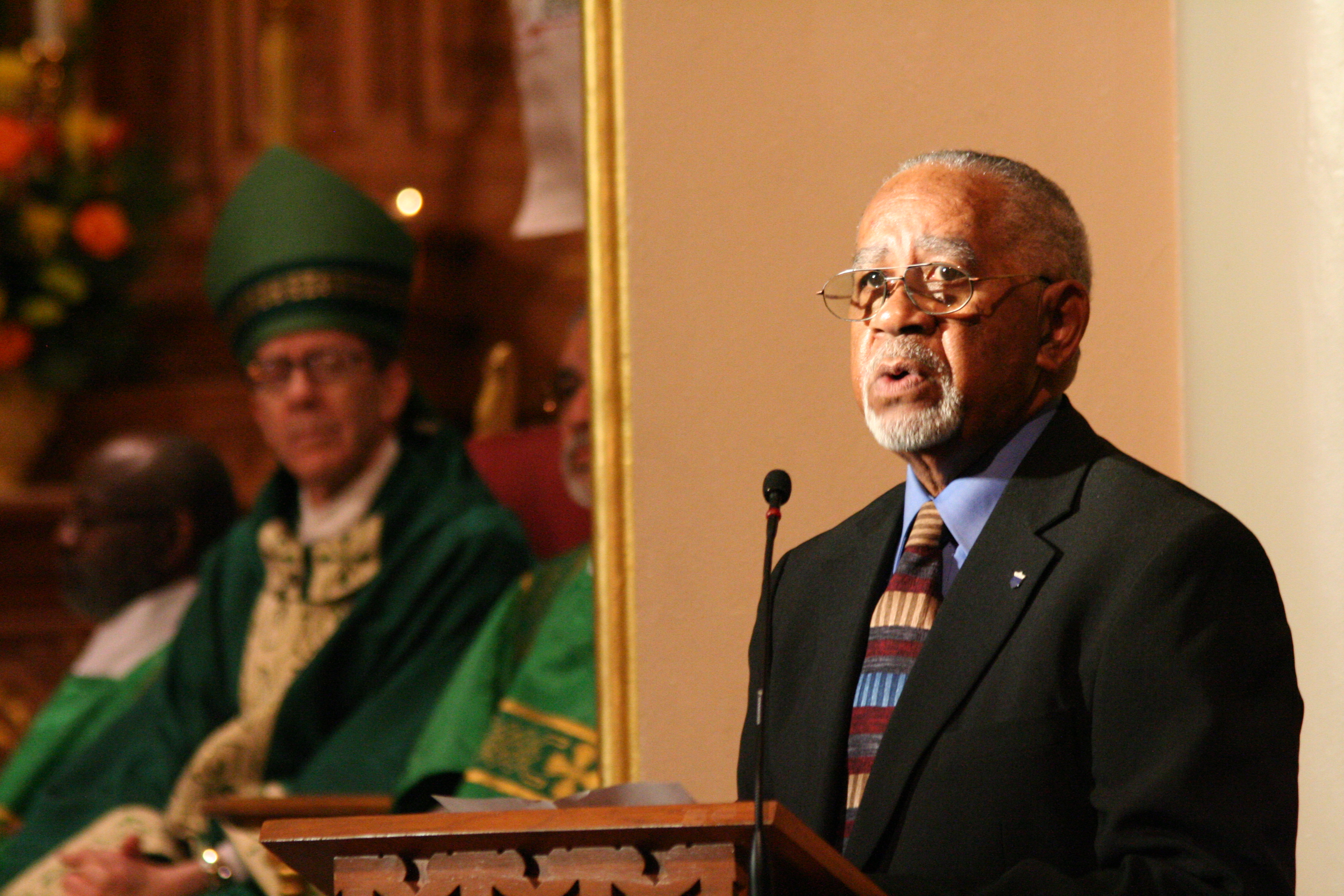
An Illinois bishop suggested 14 ways to close the racial divide. One of them: go to a weekday Mass and pray for guidance.
Bishop Edward K. Braxton of Belleville, Ill., listed ways to pray, learn, think and act upon the racial divide at the conclusion of a 19-page reflection on the matter. He issued it Jan. 1 in honor of World Day of Peace.
[quote_box_right]
MLK Events
The diocesan Office of Black Catholic Ministry is hosting an evening of reflection and Mass honoring the life of Martin Luther King Jr. at St. Mary’s Basilica, 231 N. Third St., Phoenix
Evening of reflection: 5 p.m., Jan. 18
Mass: 3 p.m., Jan. 19. Reception to follow
Info: (602) 354-2025
[/quote_box_right]
The Diocese of Phoenix’s Office of Black Catholic Ministry can help Catholics meet the bishop’s challenge. It’s hosting the annual MLK Mass Jan. 19, a Monday and state holiday, at St. Mary’s Basilica. The liturgy honors the efforts of Martin Luther King Jr. and others who made strides toward civil rights. More can be done though.
Bishop Braxton is African-American and said he twice had been the victim of what he considered unjust police attitudes while wearing civilian clothing. Isaiah “Kit” Marshall, director of the diocesan Office of Black Catholic Ministry in Phoenix, can relate.
He recalled his transition from college to the ROTC to an officer in the Army in the 1960s. He was guaranteed equal rights on base, but not off of it.
“I couldn’t even get a hotel room along Route 66 in Kansas. I didn’t consider Kansas part of the deep South,” Marshall said. “That really got my blood boiling. I drove the rest of the night to Dallas.”
He was later denied service at a drive-in hamburger place in San Antonio because of his skin color. When MLK addressed those at the March on Washington, Marshall watched it on television. He called it “very moving.”
Many of the volunteers who organize Phoenix’s MLK Mass recall hearing the “I Have a Dream” speech too.
“We feel very close to the experience of the civil rights movement. It had an impact on us,” Marshall said. “People still feel the spirit. It was a positive speech. It was a movement that inspired us.”
King himself advocated for civil rights during a “Religious Witness for Human Dignity” speech at Arizona State University in 1964. A full audio recording of the speech was formally released at last year’s Martin Luther King Jr. Breakfast celebration in Phoenix.
Part of the recording reportedly captures ASU’s then president saying that Dr. King put the Sermon on the Mount into practice. Phoenix’s MLK Mass always brings in a guest homilist to offer a Catholic reflection on King’s influence.
This year it will be Msgr. Eugene Morris, a priest of the Archdiocese of St. Louis, who has served in parish life, Catholic education at the high school and seminary levels and the diaconate. Msgr. Morris is no stranger to the radio either, hosting a weekly program in St. Louis, offering commentary for the Son Rise Morning Show and periodically serving as spiritual director for a Relevant Radio program.
Msgr. Morris comes to Phoenix recommended by Bishop Thomas J. Olmsted, who will preside at the MLK Mass.







